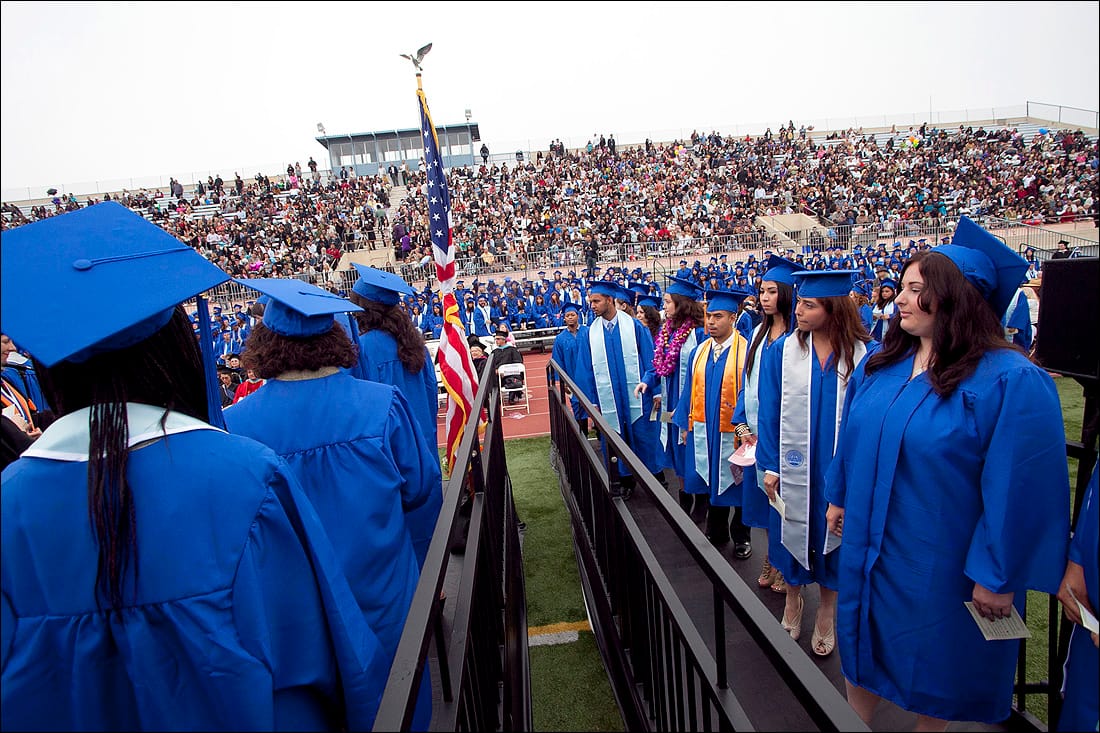
PICO BLVD — Santa Monica College officials announced Tuesday that they will offer classes this winter thanks to the passage of a school-funding measure on the November ballot, Proposition 30, and an improving economic picture painted by the California Legislative Analyst's Office.
The move reverses a September decision to leave the six-week program out of the college's budget.
The winter session will consist of at least 250 class sections, which officials hope will ease some of the burden on students struggling to get the coursework they need to graduate on time.
"We want to help the students make progress," said Susan Aminoff, a trustee at SMC. "A lot of students rely on this."
The extra classes will cost $1.5 million, said Don Girard, senior director of government relations and institutional communications with SMC.
That figure would have been higher, but officials budgeted enough money to keep the campus operating through the winter period despite the proposed lack of classes.
"Proposition 30 provides stability with regard to state funding," said Chui Tsang, president of SMC. "For the good of our students and for the good of our state, we are acting now to restore our winter class offerings."
Although the measure does not give new money to the school, it will prevent further, deeper cuts on top of the 12 percent that's been taken from the campus since 2008.
The Legislative Analyst's Office report is cautiously optimistic about state finances, which have been consistently rocky for the better part of a decade.
The state agency predicts that the state could have an operating surplus of $1 billion after the 2014-15 fiscal year, a trend expected to continue until the 2017-18 fiscal year when the office expects to have a $9 billion surplus.
"We all steeled ourselves for a continuation of four years of really bad news," Girard said.
Instead, officials got an early Christmas present that gave them the confidence to put up the additional money needed to pay for the classes.
The state will use cash from Proposition 30 to pay down its debt, something that paves the way for funding increases down the road, Girard said.
"For those of us who are into it at the granular level, the manner in which they're being responsible about it gave us confidence," he said.
It gives students more hope that they will be able to get out of school on time and potentially transfer in the spring.
The college imposed a cap on the number of units students can take during the regular session, which makes it more difficult to get the right classes and move on, said Jesus Vasquez, vice president of the SMC Associated Students.
"This will really give students the ability to continue and transfer on. More class offerings assist the overall student population," he said.
Students still have concerns about how the new classes will be assigned, something that was not made clear in an e-mail sent out to all those enrolled at SMC.
"Students are barely finding out since the notification just went out this morning," Vasquez said. "There are definitely worries."
The winter session is one of the smallest offered at SMC so far. Last year, the school provided 400 classes, down from a high of 800.
To plug in those 250 classes at all, college officials had to work quickly after the results of the election were finalized, said Louise Jaffe, a trustee at SMC.
"Staff's ability to get it together this quickly after Nov. 6 to restore the winter session speaks to how they're constantly sensing the environment and adjusting to make decisions to keep this all upright and serve the mission of the college," Jaffe said.
SMC isn't out of the woods just yet.
The school will still run a $4 million deficit, a vast improvement over the $7.8 million deficit that it could have faced, according to a presentation by Chris Bonvenuto, the director of finance for the college in September.
The school has been using its reserves to offer classes, but that is almost at an end — reserve levels have dropped from $23 million in the 2010-11 school year to a projected $11 million by the end of the 2012-13 school year.
SMC officials also recently agreed to give non-teaching staff a 1.25 percent raise next summer and one-time $1,000 bonuses, something that officials had resisted prior to the passage of Proposition 30.
ashley@www.smdp.com

